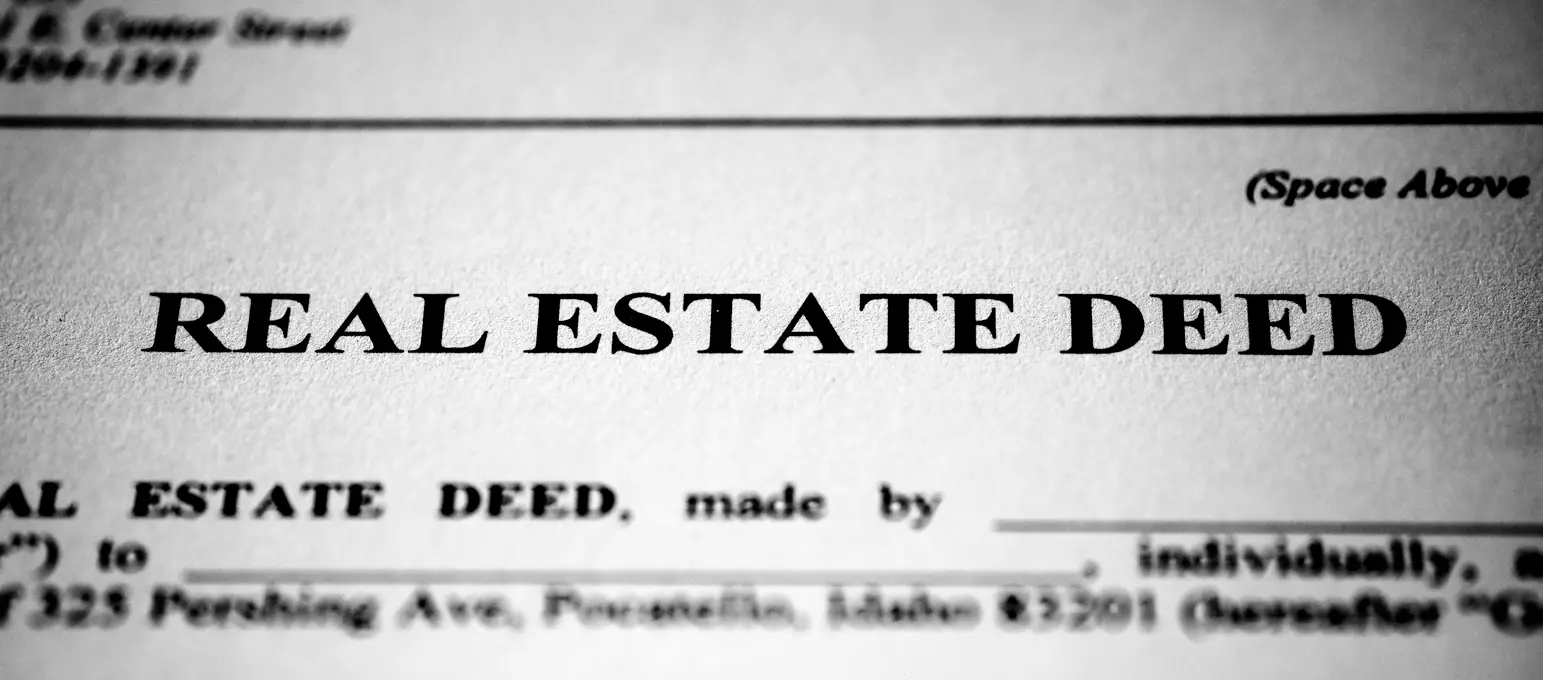Transfer Property to an LLC for Maximum Asset Protection and Tax Benefits

Table of Contents
- Transfer Property to an LLC for Maximum Asset Protection and Tax Benefits
- What Does Transferring A Property To An LLC Involve?
- Benefits of Transferring a Property To An LLC
- Transferring A Property To An LLC With A Mortgage
- Tax Consequences of Transferring Property To An LLC
- When It Makes Sense To Transfer Property To An LLC
- When You Might Want To Avoid Using An LLC
- How To Transfer Property To An LLC: Step-by-Step
A Limited Liability Company (LLC) is a highly popular business structure that property owners utilize for personal asset protection and tax benefits. A legal barrier is created with a well-crafted LLC, where the owner’s assets are shielded.
If a lawsuit arises, such as a tenant or subcontractor injury, the LLC's assets are at risk, not the owners' personal property.
The advantageous tax consequences of transferring property to an LLC can help minimize future liabilities. Tax advantages such as deductions for mortgage interest, business expenses, and facilitating a 1031 exchange. LLCs offer pass-through taxation, where individual owners' profits and losses are reported, avoiding double taxation.
The following content clearly explains the benefits and implications of forming an LLC and outlines the process of creating one.
What Does Transferring A Property To An LLC Involve?
LLCs are simple business structures, designed to protect the interests of their members (owners). With an LLC, a member’s assets are shielded from business debts and lawsuits.
LLCs are created at the state level, with each state having its own specific regulations. There is a great deal of flexibility when forming an LLC. Members choose how the LLC will be managed and whether it will be taxed as a sole proprietorship, partnership, or corporation.
Transferring property into an LLC generally involves the same procedures, no matter the state where it was created.
Here’s what is involved:
- Create the LLC with Articles of Organization from the specific Secretary of State. Pay any fees involved and appoint an agent to administer and receive official documentation.
- If the LLC has more than one member, apply for an EIN from the IRS as quickly as possible.
- Have your attorney prepare either a warranty or a quitclaim deed for transfer from the owner’s name into the LLC. A warranty deed offers a clean title and protection from any future claims. A quitclaim deed transfers the property into the LLC as is.
- Sign and notarize as appropriate, and record the new deed at the county recorder’s office.
- Make sure to update all documentation, including the LLCs and each owner or member. Insurance documents, mortgage papers, and any leases that reflect the LLC as the new owner. Open an LLC bank account.
Benefits of Transferring a Property To An LLC
Owning a rental property has several advantages, both short-term and long-term, including passive income, tax-advantaged depreciation, and long-term asset growth. However, successful property owners need to protect their assets by transferring the property to an LLC.
A well-crafted LLC offers its members an array of benefits, and shielding its owners from unexpected legal issues is of utmost importance. LLCs can also utilize various tax deductions that may not be available to its members to decrease its taxable income.
- The concept of an LLC being a separate entity is fundamental in its creation. A legal wall of security between the owner's assets and the LLC's liabilities is formed. Typically, if a tenant lawsuit arises, such as an injury or property damage, the plaintiff can only pursue the assets of the LLC, not its members.
- A key advantage of the formation of an LLC is the flexibility it offers its members. Not only does the LLC benefit from pass-through taxation, but its members have the option to be taxed as a corporation or sole proprietorship, whichever benefits the company. With pass-through taxation, the LLC’s earnings are taxed only once at the member’s tax rate.
- LLCs are valuable tools for estate planning, providing vital asset protection strategies while maintaining confidentiality. Well-positioned individuals can reduce frivolous lawsuits by transferring assets into an LLC. The LLC can protect assets from probate, bypassing the process entirely. LLCs offer additional advantages with estate taxes by facilitating the transfer of business interests.
- An LLC has become a popular business structure, offering a blend of features found in partnerships and corporations. A well-defined LLC offers its members a professional image and various business advantages.
Transferring A Property To An LLC With A Mortgage
Mortgage lenders are all about protecting their interests, and one of the essential provisos is the “due on sale” or alienation clause. The lender can demand immediate payment if certain mortgage conditions are not met. Any prospective LLC owner should have an agreement in writing from the lender before creating the LLC, if the property is the only asset.
If you are creating your first transfer into an LLC, here are a few steps to take.
- Find out who holds the paper and an agent to speak with about your mortgage, and make sure the information received is from your payoff lender. Make sure the ten or thirty-day payoff date is indicated on the payoff document.
- Explain the situation and refinance with a goal in mind, such as tax shielding, capital appreciation, or income. Build a relationship with the agent for future business.
- Talk to the agent about combining the LLC with a land trust to help streamline property assets to heirs. The arrangement also keeps owner names off the books to prevent frivolous lawsuits. Land trusts differ significantly from state to state; it is best to consult a competent attorney for guidance.
Triggering Loan Acceleration
Lenders can call in loans for a number of different reasons and scenarios, depending on the loan contract, the size of the loans, and other factors. Missed mortgage or interest payments, taxes, no insurance, and unauthorized property transfers.
In some instances, the lender may place one or several covenants on a mortgage to protect their interests. If a breach is made to any of the covenants, the lender will demand full payment of the loan in various configurations.
Tax Consequences of Transferring Property To An LLC

Tax implications are always at the core when transferring property into a newly created LLC. Capital gains tax and a disregarded entity should be clearly understood before moving forward with any transaction.
- A disregarded entity is another form of LLC where the member is not treated as separate from its owner for income tax purposes. With this type of business structure, capital gains taxes are not paid at the entity level; however, capital gains are treated as the owner’s income.
- Taxes or fees when transferring properties depend on the property’s value, the state where the transfer will take place, and any fees for document creation. Transferring property to an LLC in which you own may seem like a simple transaction; however, be aware of any tax-related consequences that may be triggered from capital gains to a total tax reassessment. Some jurisdictions may consider the transfer as a new change in ownership.
- Transferring property has distinct complications depending on whether the LLC is held individually, as a sole proprietorship, or as a corporation.
- 1) For personally owned property, the transaction may trigger a tax ladder and require mortgage consent.
- 2) Partnerships or S Corps trigger taxes at the entity level and will affect the owner’s tax basis.
- A receiving LLC does not generally file a tax return; instead, it passes through any income and debt obligations to the owners or members. Single-member LLCs may report income and debts on Schedule E of Form 1040.
When It Makes Sense To Transfer Property To An LLC
Creating an LLC and transferring property offers its members several tax advantages and layers of protection for personal assets. Future growth, asset protection, and tax flexibility are distinct advantages of a well-thought-out LLC creation.
- The asset protection provided by an LLC offers a significant advantage to property owners with multiple holdings. When multiple properties are involved, each one with its own LLC limits legal damage aimed at a single unit.
- Transferring multi-unit buildings into an LLC has several advantages. Protecting the interests of multiple owners or a plan to bring on investors is simplified with an LLC. Pass-through taxation and cost-effective LLC structures are another advantage.
- Savvy investors considering a purchase of high-liability properties always want to shield themselves from any potential lawsuits. Properties with a higher probability of tenant injuries and rehabs require protection.
- When there are multiple owners or business structures, an LLC may be the best choice. An LLC shields personal assets and streamlines management.
When You Might Want To Avoid Using An LLC
Even though a well-structured LLC can protect interests and provide many benefits, there are times when the business entity is not the answer.
An LLC might not be the answer in the following circumstances:
- Liability protection is not needed
- The business offers complex compensation to an employee
- Professions with very specific job instructions
- Owners who want simplified tax reporting and the entity is taxed as a pass-through business.
- An LLC is created to attract investors
How To Transfer Property To An LLC: Step-by-Step

- The first step is to know the exact procedure to create the specific LLC for your goals. There are several types available, such as non-profit, low-profit, domestic, or foreign.
- Learn the exact state requirements and hire a lawyer to get the job done.
- Apply for an EIN.
- Use a real estate attorney to prepare the documents to transfer a piece of property. Sign the deed and make certain the deed is recorded at your county's recording clerk’s office.
- Update property records, mortgage documentation, and insurance rights.
Transferring property to an LLC can be a strategic move that offers significant advantages in asset protection, tax planning, and liability management. However, property owners must carefully evaluate state regulations, mortgage terms, and tax implications to ensure the process aligns with their financial and legal goals.
Search Property & Deed Records
Table of Contents
- Transfer Property to an LLC for Maximum Asset Protection and Tax Benefits
- What Does Transferring A Property To An LLC Involve?
- Benefits of Transferring a Property To An LLC
- Transferring A Property To An LLC With A Mortgage
- Tax Consequences of Transferring Property To An LLC
- When It Makes Sense To Transfer Property To An LLC
- When You Might Want To Avoid Using An LLC
- How To Transfer Property To An LLC: Step-by-Step










